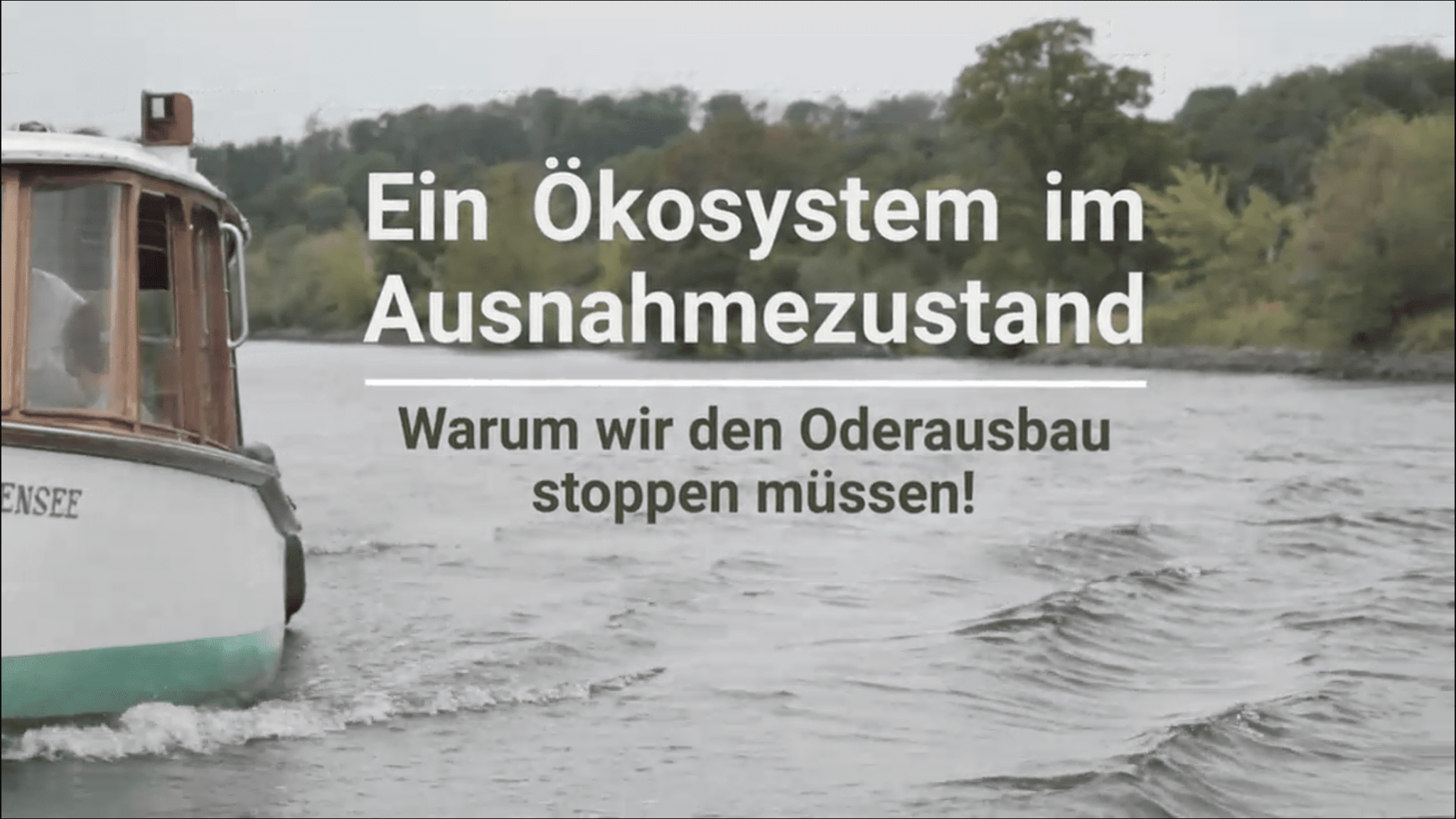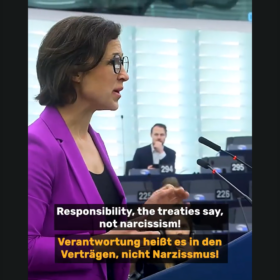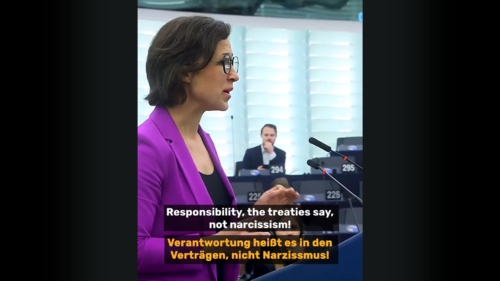This summer, the ecosystem of the Oder river has shown its limits in a dramatic way: Excessive saline discharges, warm temperatures and low water levels led to a mass fish and mussel die-off. I was travelling on and along the Oder river during this time and witnessed the ecological catastrophe first-hand.
Since then, as Greens we have been calling at all political levels for explanations regarding the events and a transparent monitoring system for the Oder. What the river needs above all is time and support for its regeneration (link in German). In addition to a reduction in industrial discharges, the works on the river – which the Polish PiS government is unswervingly pushing ahead with – must be stopped. These works make no sense and severe consequences await Usedom, for example, if they continue. People from the region who I met with during my trip give more details in the video below:
You are currently viewing a placeholder content from Youtube. To access the actual content, click the button below. Please note that doing so will share data with third-party providers.
More InformationThe plans for the works on the Oder river date back to a German-Polish government agreement and were at the time justified with flood protection.
In the meantime, a number of scientific studies have shown that the deepening and narrowing of the river would increase the risk of flooding, and that ecological flood protection through renaturation is a much better alternative. The Polish PiS government has also made no secret of its intention to promote inland waterway transport (although rail freight transport is the better option).
Since the works on the Oder have so far also been financed with money from the European Union and the World Bank, as Greens we are currently trying to put pressure on the financiers at the European level. My colleagues from Brandenburg, Sahra Damus and Ska Keller, together with representatives of the Polish Greens (Przemysław Słowik and Beata Bliska) visited the World Bank in Brussels (link in German) and managed to ensure that it will now critically examine the project. Sergey Lagodinsky, Ska Keller and I have also called on EU Environment Commissioner Virginijus Sinkevičius to review EU funding for the project and insist on compliance with the Water Framework Directive.
At the federal level, Environment Minister Steffi Lemke is planning projects to renaturalize the Oder river in response to the ecological disaster. The German Bundestag supports this plan and has earmarked corresponding funds in its budget planning.
At the state level (Brandenburg), Green Environment Minister Axel Vogel has filed a lawsuit against the works on the Oder (link in German), arguing that the Polish government’s plans do not take into account the new situation, with climate change having an ever greater impact on the river.
Fortunately, German and Polish civil society are on the same page. After German environmental associations had filed a lawsuit with the Administrative Court in Warsaw (link in German) in September, the EuroNatur Foundation, together with an alliance of Polish and German partner organizations, filed a complaint with the European Commission regarding the works on the Oder last week.
I will definitely keep an eye on any new developments regarding this topic!
You are currently viewing a placeholder content from Youtube. To access the actual content, click the button below. Please note that doing so will share data with third-party providers.
More Information











